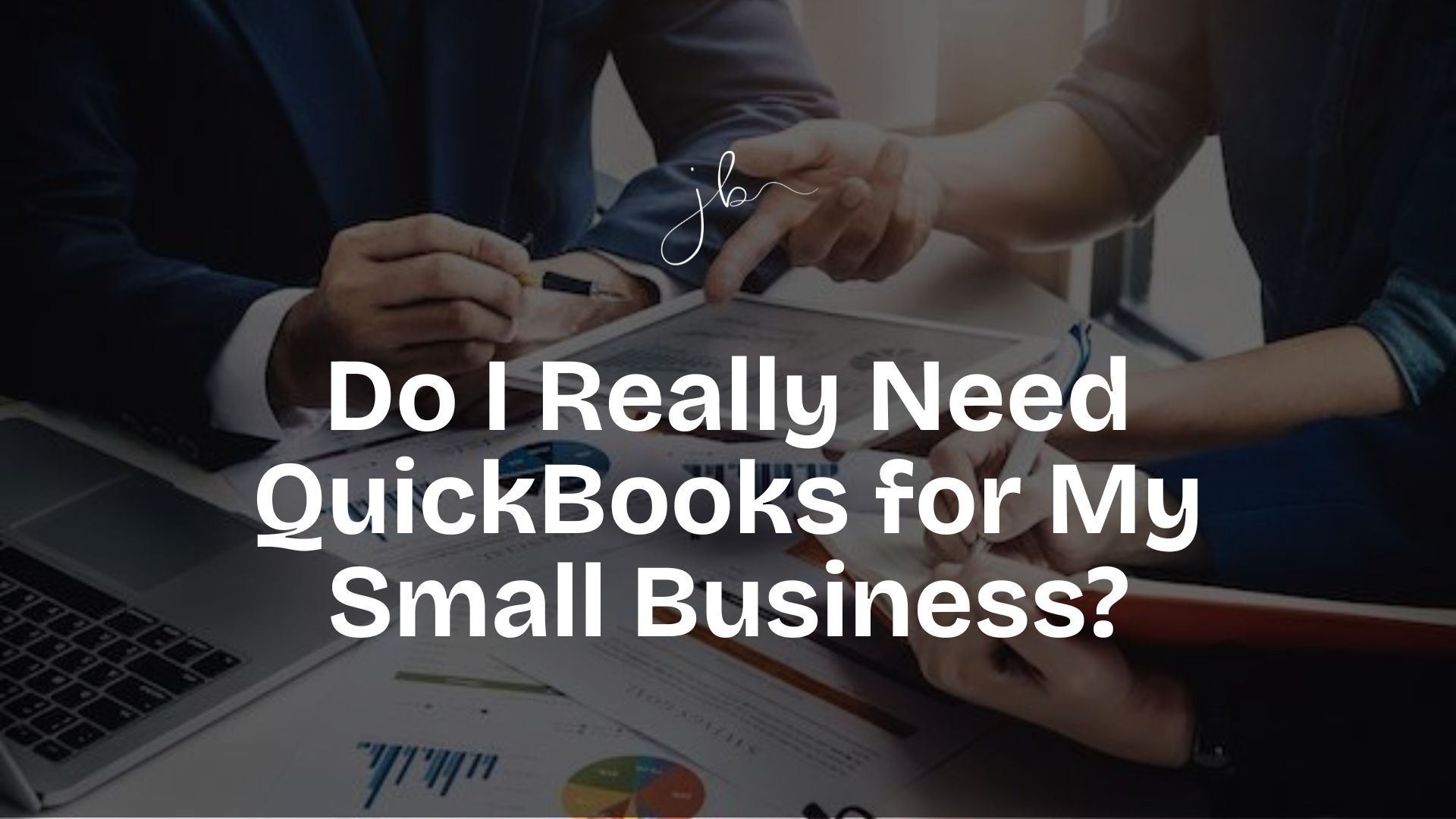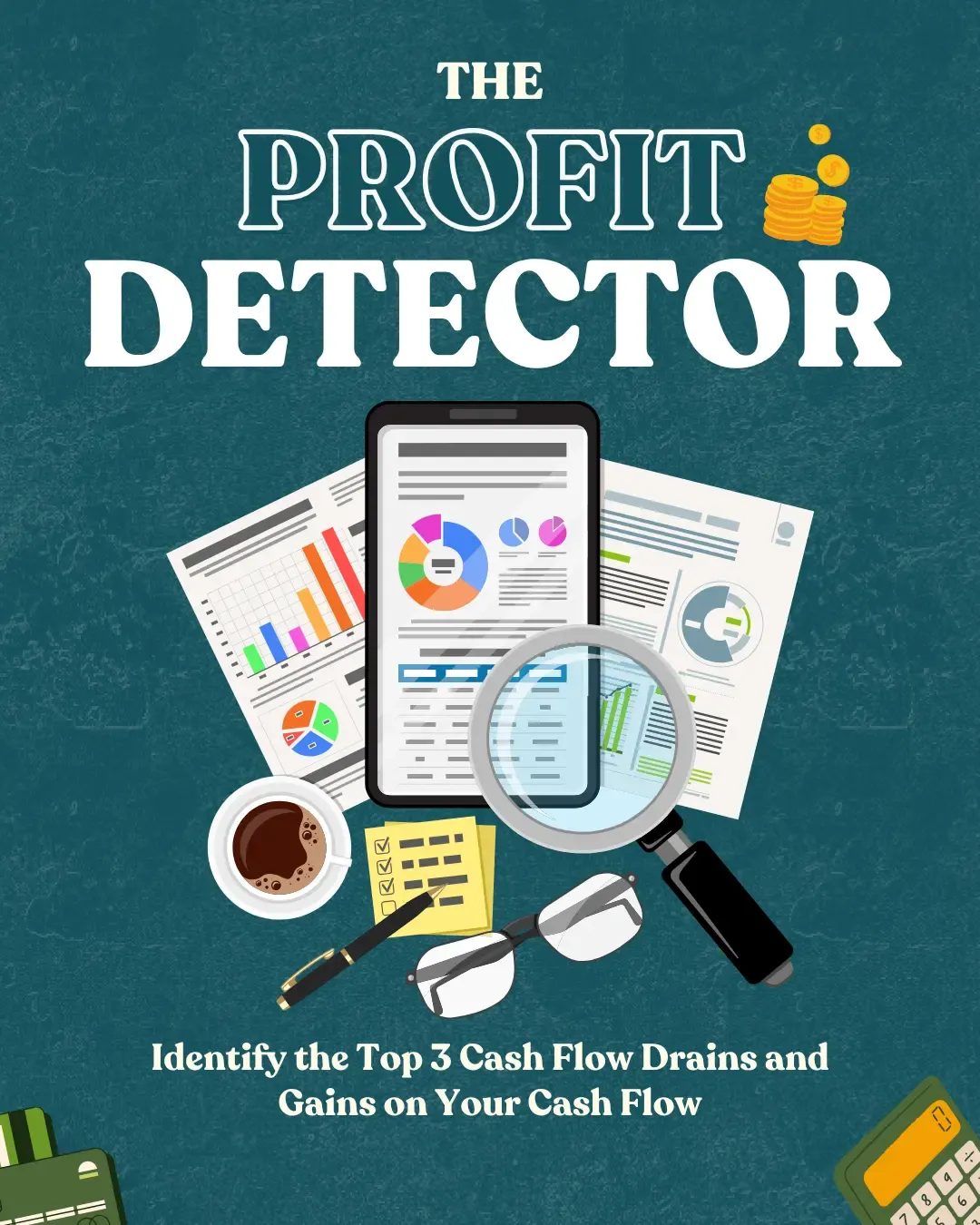Do I Really Need QuickBooks for My Small Business?

Running a small business sometimes feels like juggling flaming swords while riding a unicycle. Every day, you wear ten hats: salesperson, customer service rep, marketing manager, sometimes even janitor. And somewhere in that lineup is a hat most of us never asked for: bookkeeper.
I often get asked, “Do I really need QuickBooks to run a small business?”
Some people swear by it. Others break out in hives just hearing the name. And if you’ve ever been told that “real businesses” use accounting software, or if you’ve been trying to get by with a shoebox full of receipts and a spreadsheet that hasn’t been updated in months, this one’s for you.
Because here’s the truth: bookkeeping isn’t about software. It’s about clarity. It’s about knowing where your money is going, so you can make smarter decisions and avoid those unwelcome surprises like an unexpected tax bill or realizing you double-paid a vendor.
Let’s break it down.
What Accounting Software Actually Does
At its core, platforms like QuickBooks, FreshBooks, or Wave aren’t magical. They don’t run your business for you. But they make life easier by automating the stuff you’d otherwise manage.
Here are a few ways they help:
- Track income and expenses: Instead of sifting through crumpled receipts or trying to remember whether that Uber ride was personal or business, accounting software pulls in and categorizes your transactions.
- Send invoices: You can create professional invoices in minutes, set up reminders for late payments, and even get paid by credit card or bank transfer—all inside the platform.
- Sync with your bank: Your checking account, credit card, and even PayPal can connect directly, which means no more endless manual entry.
- Generate reports: Need a profit-and-loss statement, balance sheet, or cash flow report? It’s literally a few clicks away. And when tax season comes around, you’ll thank yourself for having this ready.
- Collaborate with your accountant: Instead of emailing spreadsheets back and forth, you can give your bookkeeper or CPA secure access to your books in real time. That means fewer errors, fewer headaches, and a smaller bill from your accountant.
Yes, accounting software is robust. But the bigger question is, when do you actually need it?
Signs It’s Time to Level Up
QuickBooks might be overkill if your business is still brand new and you only have a handful of monthly transactions. A simple spreadsheet could be enough if you use it consistently. But there are some clear signs it’s time to graduate to something more robust:
- You’re making consistent sales every month. Whether that’s $1,000 or $100,000, you need visibility into cash flow, what’s coming in, what’s going out, and whether you can pay your bills or reinvest in growth.
- Tax season keeps you up at night. April feels like chaos when your income and expenses are scattered across bank statements, Venmo payments, and stray receipts. Software helps you stay compliant year-round, not just at the deadline.
- You’re seeking funding. Banks, investors, or even potential partners will want to see clean, professional financial statements. A handwritten notebook or jumbled Excel file doesn’t build confidence.
- You’re hiring a bookkeeper or accountant. If you’re paying someone to manage your books, don’t make their job harder. The cleaner your system, the less time they spend and the lower your bill.
If you’re nodding to any of these, it might be time to bring QuickBooks (or another tool) into your workflow.
Alternatives to QuickBooks
I’ll be the first to say that QuickBooks is the “big kid on the block.” It’s widely known, widely used, and for many businesses, it’s the right choice. But it’s not your only choice.
- Wave: Free and simple. Great for freelancers, solopreneurs, or early-stage businesses running lean. It covers invoicing, expense tracking, and receipt scanning.
- FreshBooks: Tailor-made for service-based businesses like consultants, coaches, or freelancers who bill by the hour. It’s intuitive, offers project-based billing, and even has client portals.
- Google Sheets/Excel: Don’t underestimate a well-structured spreadsheet. If you’re doing fewer than 30 transactions a month, this can work as long as you’re disciplined about updating it.
The key isn’t the tool. It’s the habit.
Why Tracking Matters
Let’s pause here because this isn’t just about money.
When you track your income and expenses consistently, you’re not just staying “organized.” You’re practicing financial self-care for your business. Just like going to the gym or eating well keeps your body healthy, paying attention to your numbers keeps your business alive and thriving.
Without that clarity, you’re guessing. You might think you’re profitable when you’re just moving money around. Or you might miss opportunities to invest, grow, or pay yourself what you deserve.
Clarity breeds confidence. And confidence fuels growth.
My Biggest Advice: Use What You’ll Actually Use
I’ll tell you a secret: the “best” accounting software is the one you’ll actually use.
You could buy the most advanced tool on the market, but it's worthless if you never log in. On the other hand, if you stay consistent with a simple spreadsheet, you’ll be miles ahead of the business owner with a QuickBooks subscription collecting dust.
The tool doesn’t make you legitimate. Your consistency does.
Practical Next Steps
So where do you go from here?
- Audit your current system. Are you tracking consistently? If not, what’s standing in the way: time, complexity, or habit?
- Start simple. If you have fewer than 30 monthly transactions, commit to updating a spreadsheet weekly. Build the muscle before you pay for software.
- Level up when needed. As your revenue grows, move to Wave or FreshBooks. QuickBooks becomes worth it if you hit consistent monthly sales and want tax readiness or investor-ready reports.
- Don’t wait for perfection. The best system is the one you’ll use today. You can always upgrade later.
Final Thought
At the end of the day, whether you’re using QuickBooks, Wave, or a color-coded Excel file, what matters most is that you know your numbers.
Because if you don’t know your numbers, who does?
You can’t grow what you don’t track. And when you take control of your finances, you take back control of your business.
So find a system that fits your stage and your style and stick with it. Consistency will prevent surprises, build trust with partners and clients, and give you the confidence to grow.
Ready to Take the Next Step?
Being a small business owner doesn’t mean you have to do it alone. If you’re ready to get clarity on where you are and where you’re headed, here are some ways to go deeper with me:
🔗 Take the free Small Business Owner Assessment:
👉 https://alignedimpact.scoreapp.com/
🔗 Register for a live webinar:
👉 jayboykin.com/webinar
🔗 Enroll in the Digital Course (Beta):
👉 jayboykin.com/beta
🔗 Curious how AI can streamline your business? Ro.am (affiliate):
👉 https://ro.am/camp/go/just_human
SUBSCRIBE FOR WEEKLY INSIGHTS
Don't miss out on updates, new podcast episodes, and valuable insights from Jay. Subscribe and join his newsletter community for thought-provoking discussions and tips on fostering a human-centric workplace culture.
We hate SPAM. We will never sell your information, for any reason.



